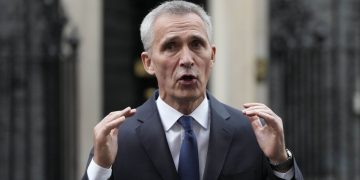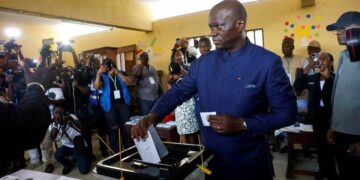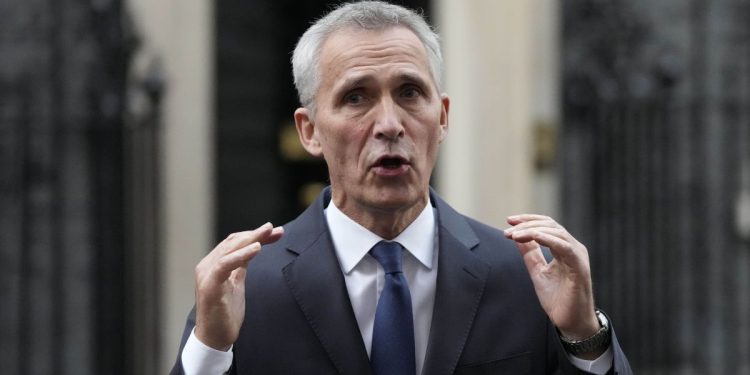By Enyichukwu Enemanna
The Secretary General, North Atlantic Treaty Organization (NATO) Jens Stoltenberg on Monday accused Russia of destroying the bridge of trust built by the West since the end of the Cold War by its invasion of Ukraine.
Stoltenberg said a level of trust that had been established during a rapprochement between Western nations and Russia in recent decades had been destroyed by Moscow’s decision to invade Ukraine.
“NATO strived for decades to develop a better, more constructive relationship with Russia,” Stoltenberg told reporters in Brussels.
He continued, “After the end of the Cold War we established institutions [like the] NATO-Russia Council, when I was prime minister of Norway I remember that President Putin attended NATO summits … so this was a different time when we worked for a better relationship. Russia has walked away from all of this.”
“Even if the fighting ends, we will not return to some kind of normal, friendly, relationship with Russia. Trust has been destroyed,” he said. “I think the war has had long-lasting consequences for the relationship with Russia.”
Stoltenberg’s comments come as the war in Ukraine shows no signs of slowing down over the winter period, despite expectations among some Western analysts that both Ukraine and Russia could look for a lull in the fighting to regroup before launching renewed counter-offensives in the spring.
Russia continues to pound Ukraine’s energy infrastructure too with devastating consequences for civilians; drone strikes on Saturday left 1.5 million people in the port city of Odesa without power, for example.
Russia President Vladimir Putin signaled last week that he was in it for the long-haul, saying the so-called “special military operation” could be a “lengthy process.”
Russia insists that its aim is to “liberate” regions (Donetsk and Luhansk in eastern Ukraine and Kherson and Zaporizhzhia in the south) that it unilaterally and illegally “annexed” after coercive referendums on whether to join Russia.
Stoltenberg insisted that the war could stop at any moment if Russia chose to end hostilities.
“They [Russia] can do as many other European countries have done since the end of the Second World War, they can choose peace, choose cooperation, choose to trust their neighbors instead of always being so aggressive and threatening neighbors as Russia has done again and again against Georgia, against Ukraine.”

































